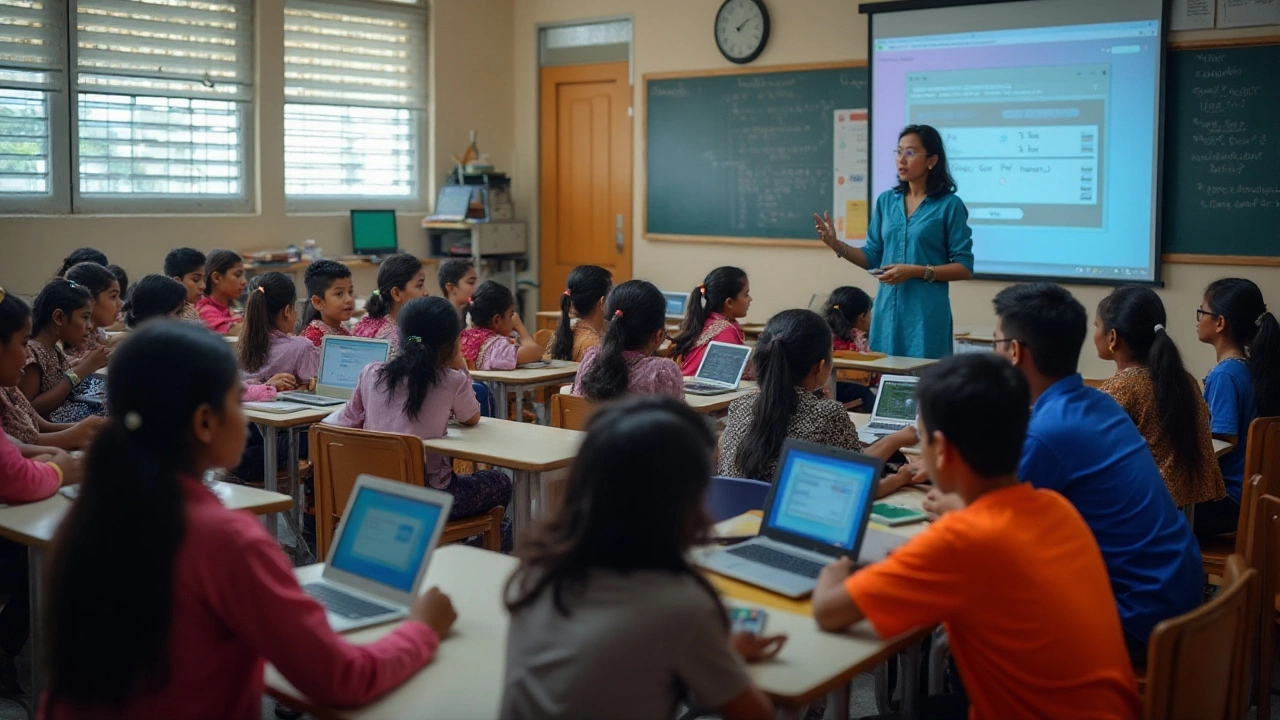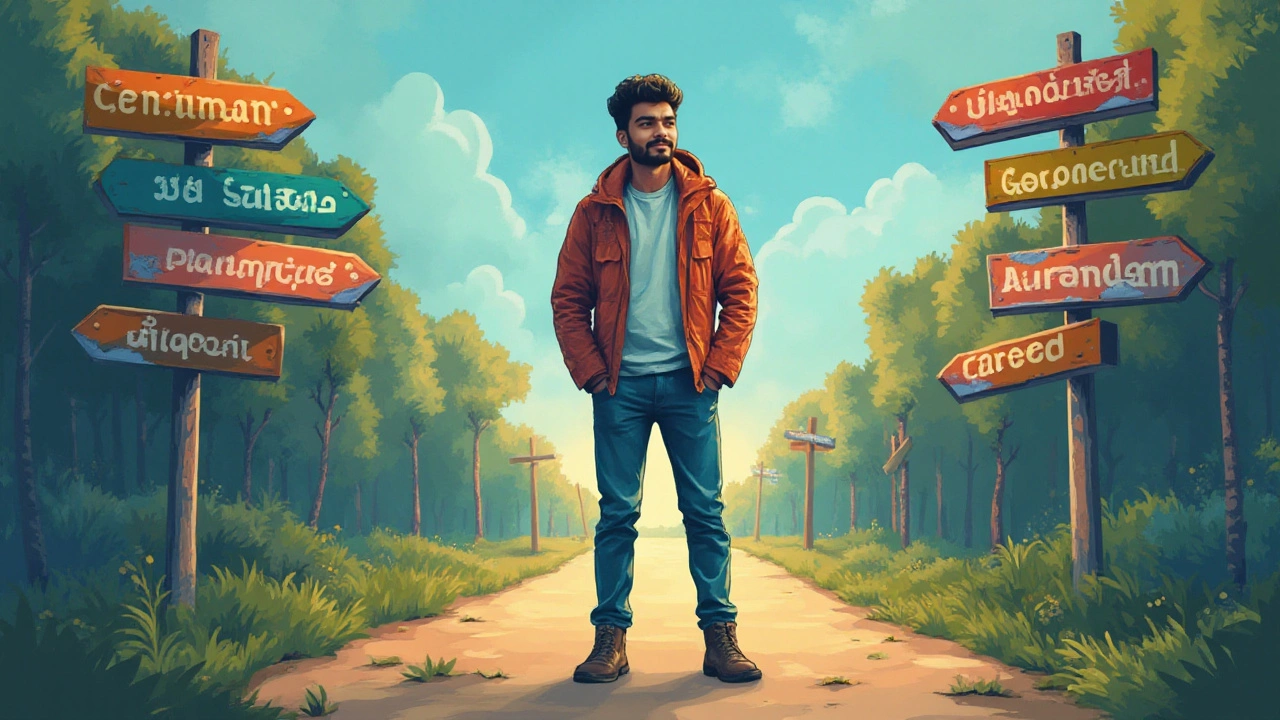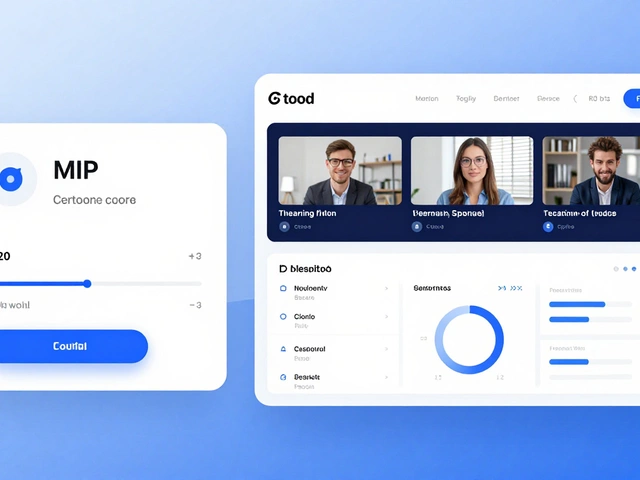Diving into the world of coding is like setting off on a grand adventure, filled with learning, exploration, and a good sprinkle of challenges. Whether you're completely new to the realm of programming or looking to refine your skills, understanding how long it might take to learn to code is a common curiosity.
The timeline for mastering programming varies widely with each individual's unique circumstances and learning style. From complete beginners to those with some digital know-how, it's important to cater to your learning pace while enjoying the journey.
In this article, we'll explore vital insights on cracking the code, what influences the time it takes to learn, and strategies to enrich your programming education experience. So grab your metaphorical map and let's embark on this fascinating journey together!
- Understanding the Basics
- Factors Affecting Learning Speed
- Setting Realistic Goals
- Tips for Staying Motivated
Understanding the Basics
Before you can truly make significant strides in the world of coding, it's essential to start with a firm grasp of the basics. Coding, at its heart, is all about problem-solving and finding creative ways to instruct computers to perform tasks. The foundations of coding are built upon learning the logic and structure that underpin various programming languages. For beginners, languages like Python or JavaScript are often recommended due to their relatively simple syntax and versatile applications. Python, for instance, is known for its readability and is extensively used in fields like data science and web development.
The initial step in your coding journey is to understand the core concepts such as variables, data types, and control structures. Variables are essentially containers that store values, and they are the building blocks for writing effective code. Data types define the kind of values variables can hold, such as integers, strings, or booleans. Control structures, including loops and conditionals, are crucial for creating complex programs that can make decisions based on given conditions or iterate over a range of values. An important tip is to practice these concepts thoroughly, as they form the scaffold on which more complex ideas will be built.
Once you have grasped these essentials, it becomes imperative to learn about functions and algorithms. Functions are blocks of reusable code that perform a specific task and can be called upon to run as needed. Within the coding community, there's an adage, "Don't Repeat Yourself" (DRY), which means writing code in a way that avoids redundancy, and functions are key to achieving this. Algorithms, on the other hand, are step-by-step procedures used to solve problems, and understanding how to craft efficient algorithms is a crucial skill in coding.
Nolan Bushnell, founder of Atari and Chuck E. Cheese, once said, "Learning to program teaches you how to think. Computer science is a liberal art." This sentiment captures the essence of coding as a thinking process, one where articulating clear thought becomes second nature. As you develop these foundational skills, remember that patience and practice are paramount. Creating small projects or challenges can keep learning vibrant and prevent knowledge from becoming stagnant.Understanding how to use development tools and environments is another pivotal aspect of mastering the basics. Integrated Development Environments (IDEs) like Visual Studio Code or PyCharm are popular among beginners because they provide user-friendly interfaces, code suggestions, and debugging tools. Familiarizing yourself with the version control systems like Git is also beneficial, as these tools are widely used in collaborative coding projects, allowing multiple developers to work on the same code without stepping on each other's virtual toes.
Finally, newbie coders often underestimate the importance of understanding documentation and community support. Official language documentation can serve as a comprehensive guide, aiding in problem-solving when you're stuck. Online platforms like Stack Overflow provide forums where programmers can ask questions and share knowledge, building a community around coding. Remember, coding is an evolving skill where a foundational understanding leads to significant advancements in problem-solving and creativity. Harnessing these aspects can set a strong base for achieving programming skills with confidence and capability.

Factors Affecting Learning Speed
Embarking on the journey to learn coding can be both exciting and daunting, and the speed at which one learns programming can vary significantly. Several factors play a crucial role in how swiftly someone might go from being a novice to a proficient coder. One of the primary considerations is the initial level of familiarity with technology and coding concepts. Those who have dabbled in technology or possess a knack for logical thinking may find certain elements of coding come more intuitively. Yet, everyone starts somewhere, and a curious mind can overcome many hurdles on this path.
The specific programming language chosen can also largely influence learning speed. Languages like Python are often recommended for beginners due to their readable syntax and wide applicability, making the learning curve less steep compared to languages like C++ with their complex features. Your choice should align with your goals; if you're interested in web development, JavaScript might be your language of choice, while data science enthusiasts tend to gravitate towards Python or R.
Learning speed is also impacted by the amount of time one can dedicate to practice regularly. Coding is a skill honed over countless hours of problem-solving and creating projects. A consistent study routine— whether it's an hour a day or longer sessions on weekends— will foster a deeper understanding more quickly than sporadic bursts of intense focus. Consistency often beats a daunting amount of hours when spread over a more extended period.
Moreover, access to quality resources greatly determines how fast you can progress. With a plethora of online coding classes vying for attention, choosing the right one is essential. Interactive platforms like Codecademy or Udemy offer courses tailored to various skill levels, ensuring that you have a structured path to follow. Beyond courses, engaging with communities like Stack Overflow or GitHub can provide real-world insights and offer support from seasoned professionals willing to share their expertise.
Yet, coding isn't merely a solitary pursuit. Many find motivation and inspiration through collaboration, such as joining coding boot camps or local coding clubs. Here, learning becomes a shared experience where solving problems together can significantly speed up the learning process. It's worth noting that programmers often describe coding as a humbling experience—constant feedback loops of debugging and refactoring teach patience and perseverance.
"Learning to code is like learning a musical instrument. The key is diligence and practice, coupled with the guidance of a good teacher," says renowned author and programmer Cory Althoff.Lastly, it's important to consider personal motivation and long-term goals. Those who view coding as a necessary evil for a job requirement may find it slower to engage compared to those who are truly passionate about the creative possibilities it offers. Setting realistic goals and breaking down your aspirations into achievable milestones can keep the journey manageable and rewarding. Learning to code is a marathon, not a sprint, and understanding these nuances will help you set off on the right foot.

Setting Realistic Goals
Embarking on the journey to learn coding is invigorating, but without setting realistic goals, it's easy to veer off course. The key to success is constructing a roadmap that's not only attainable but also adaptable to your evolving skill set and personal pace. Start by acknowledging where you stand in terms of experience and determining what you hope to achieve. Are you looking to become fluent in Python to analyze data, or are you aspiring to develop web applications with JavaScript? For beginners, framing clear, achievable milestones is paramount; maybe your first goal is writing and understanding simple scripts within a month.
Progress in learning to code is best measured in small, victorious steps, rather than quantum leaps. Dissecting larger goals into bite-size tasks provides a structured approach and reinforces steady advancement. For instance, before embarking on creating a complete application, aim to master fundamental concepts like loops, conditionals, and functions. Online courses, like those offered through platforms such as Coursera and Codecademy, can serve as flexible companions in your educational expedition. Notably, while many students might dedicate 300-400 hours to become job-ready coders, maintaining realistic expectations about your individual pace will help you avoid burnout.
Beyond setting goals, weaving in consistent practice and review is critically important. Allocate specific time slots within your week solely for coding, ensuring consistency is woven into your routine. Life invites unexpected detours, and having a buffer allows for adaptation without guilt. Renowned programmer and author Robert C. Martin once said,
"The program in the head is only marginally better than the program on the screen."This is a reminder that actionable steps and tangible output matter more than intricate plans confined to the mind.Goal-setting isn’t just about mapping the route; it involves delightful detours into exploratory practice, where you apply what you’ve learned in creative projects. Perhaps you’re building a personal website or automating mundane tasks. Challenges may arise and that’s perfectly normal. Use these experiences as learning platforms, paving the way for adaptive thinking. When you stray from the typical track, shake off frustration and embrace the twists and turns as catalysts for growth. Staying motivated requires a dash of resilience and rest assured, roadblocks are but landmarks on the journey to mastering the art of programming.
For those midway in their coding journey, refreshing goals periodically is crucial as it reflects your progress. With resources readily available, diversifying your skill set also safeguards against plateauing. Engaging communities, both on and offline, offer not only advice but also encouragement. Platforms like Reddit and GitHub enable collaboration and feedback, nourishing your learning. Setting goals is evolving, and as you grow as a coder, your targets evolve, preparing you for unforeseen adventures. Thus, steady growth and disciplined practice make the once daunting trek into coding a rewarding excursion.

Tips for Staying Motivated
Embarking on a journey to learn coding can be akin to climbing a mountain—exciting yet demanding. Staying motivated throughout this endeavor requires some strategy and insights. One effective method is setting small, achievable goals. It's easy to get overwhelmed if the only goal you set is to master a complex programming language. Instead, break it down into more digestible pieces. For instance, focus on understanding loops this week, and then arrays next week. These micro-goals create a pathway of successes that boost your confidence and keep the momentum going. Imagine it like puzzle pieces eventually forming a complete picture.
Another crucial factor is joining a community, be it online forums, local meetups, or study groups. Engaging with others who are also on their path to learning to code can offer moral support and opportunities to share knowledge. You not only learn from their experiences but also gain a sense of camaraderie which enhances motivation. As the well-regarded American journalist, Walter Isaacson once pointed out,
"Technology is best when it brings people together."Your fellow learners can become your allies in this educational endeavor.Balancing learning with love for coding is vital as well. Often, the pressure to meet certain standards or deadlines can overshadow the joy of coding. To counteract this, try practicing coding by working on projects that are of personal interest. If you love music, create a simple application that generates playlists. If you enjoy maths, try developing a calculator app. When you code around what you are truly passionate about, it feels less like a chore and more like an indulgent activity, sparking motivation naturally.
Additionally, regular reflection and assessment of progress should not be underestimated. Keeping track of what you’ve learned and acknowledging how far you’ve come fuels a sense of purpose and achievement. Consider maintaining a journal or a portfolio that documents your coding triumphs and struggles. This record becomes a testament to your dedication, and on tough days, it serves as a reminder of your capability and the resilience you’ve demonstrated thus far.
Finally, don't forget the power of taking breaks. Learning to code is a marathon, not a sprint, and mental fatigue can creep up unnoticed. Incorporate balanced breaks into your learning routine to refresh your mind. Stepping away from the screen can unexpectedly cultivate creativity and problem-solving skills. When you return, you often find renewed energy to tackle coding challenges. Remember, the aim is to nurture sustained motivation over time, embracing a rhythm that enhances your learning journey rather than exhausting it.





